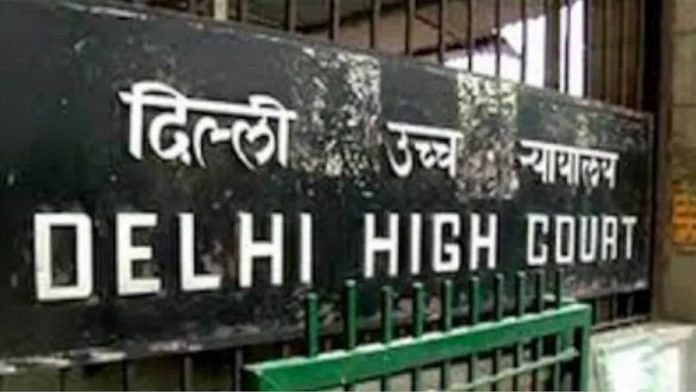New Delhi: Tax problems of the Indian National Congress (INC) are of its own making, said the Delhi High Court Wednesday as it refused to grant an interim stay on a tax recovery order of over Rs 100 crore imposed on the political party. In doing so, the HC said that the Income Tax Appellate Tribunal (ITAT) order had captured the correct legal position and there was no infirmity which required interference by the court.
With this, the Delhi HC rejected the urgent writ petition filed by the Congress against ITAT’s order passed last week, where the tribunal had refused to stay a demand notice of over Rs 100 crore against the party.
This was a response to an “urgent listing” sought by the political party after its accounts were frozen, calling it an “attack on democracy”.
The case before Justices Yashwant Varma and Purushaindra Kumar Kaurav of the HC related to a tax dispute between the Indian National Congress and the central government, where the former had declared a lower assessable income. This was due to a dispute over a deduction under the Income Tax Act, which had been rejected by the tax authorities.
Refusing to quash the tax demand, the Delhi HC said that the tax tribunal had correctly applied the legal position by applying all factors before it.
Specifically, the dispute relates to a tax demand of Rs 105.17 crores, which had emerged because of a difference between the “assessable income” (on which tax is actually calculated) and the “returned income” (on which a taxpayer files their returns).
The INC had reported lesser returned income due to its reliance on a deduction on Section 13A of the Income Tax Act, which would have decreased its taxable income.
However, the application of the section was rejected due to a delay in time limit prescribed and excess value of donations received — both of which are impermissible under the section.
This meant that as against its lower returned income, its assessable income was much higher. This led to a demand of over Rs 105.17 crores back in 2021. However, no action was taken by the INC.
Before the Court, Zoheb Hossain, appearing for the Union of India, submitted that even though INC was offered to only pay 20 percent of its liability, it did not, making it liable to discharge the entire liability according to legal principles.
The court observed that even though the notices of demand were issued in June 2021, no concrete steps were taken by INC to remedy the situation for almost two years, after which a “demand letter” was sent.
“The petitioner appears to have fallen into deep slumber and stood reawakened only in January 2023 when a notice of demand came to be raised… The problems that beset the petitioner today are thus, and to a large extent, of its own making”, the court observed.
It noted that the tribunal had given due consideration to the merits of the dispute by correctly applying judicial principles.
There was “no infirmity” in the conclusions reached by the Tribunal, as the route adopted was not “implausible, wholly untenable… or one which suffered from manifest perversity”.
“The order reflects the ITAT having conferred due consideration upon the various grounds of challenge which stood raised (sic). The view taken in any case does not appear to suffer from any manifest illegality which would have warranted us invoking our powers of judicial review,” the court said.
The HC added that its refusal to interfere with the order of the ITAT was based on the four corners of judicial review and the order must not be read as an endorsement of the tribunal’s reasoning.
Justices Varma and Kaurav also added that the INC had repeatedly asked for adjournments in the past when the matter was called out under Section 226 of the Income Tax Act.
“An assessee in default can neither be permitted nor expected to adopt such a casual or lackadaisical approach while faced with a tax demand…,” the court added.
(Edited by Zinnia Ray Chaudhuri)
Also read: ‘Two heads better than one’ — what SC had said about single-member Election Commission



